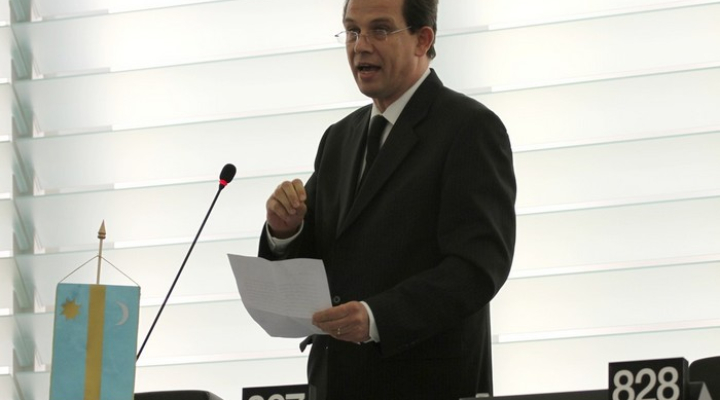MEP Csaba Sógor on the new tax measures of the Ponta administration and the prohibition of the use of the Szekler flag at the EP’s plenary session
Philippe De Backer Austrian MEP's own-initiative report on facilitating SMEs' access to finance was adopted on Tuesday, February 5th at the European Parliament’s Strasbourg plenary session. On the previous day, Csaba Sógor DAHR MEP participated at an extensive discussion on the subject. The Transylvanian MEP underlined the economic and social aspects of the issue, bringing up another important issue.
Csaba Sógor talked about the foreseeable consequences of the new tax measures of the Ponta administration, and expressed his concerns about the possibility of thousands of Romanian SMEs going bankrupt due to the fact that they will pay taxes based on income, not profit. This would lead to a rise in unemployment and a reduction in consumption.
The MEP’s speech can be read below:
“As we all know, SMEs are the backbone of the EU economy as well as the number one job providers. The contraction of credit and the general economical insecurity caused by the financial crisis affects them the most. Financial woes are however only part of these companies’ problems, as some member states, driven by the need to decrease budgetary deficit and increase state income, further burden this sector. Romania’s new government does the same, with the approval of the International Monetary Fund. Based on prime minister Ponta’s new tax measures SME’s will be taxed based on income, not profit. Experts warn that this could lead to thousands of Romanian SMEs going bankrupt, which would result in a rise in unemployment and a reduction in consumption and would also inhibit economic growth.”
---------------------------------------------------------------------------------------------------------------------
On Wednesday, February 6th, members of the EP discussed possible peaceful solutions to the conflict between Turks and Kurds from Turkey. DAHR MEP Csaba Sógor commented on the subject, holding that the solutions to the problems of European national minorities should be found at an EU level and that the EU institutions should be involved in these matters, even though the European Commission does not feel competent in this area. He also argued that the European year of citizens was a great opportunity for this and that taking action would also improve the credibility of the EU.
Answering to a so called blue card question addressed by one of his fellow representatives, Csaba Sógor pointed out that rights of national minorities are still violated in the EU: laws, such as the Bene¹ Decrees, that contradict European principles are still in force, and there are obstacles to using one’s mother tongue in many places of Romania. Member States should be held accountable for not respecting the Copenhagen criteria, and the European Union should elaborate a legislative framework to protect national minority rights similar to the Roma integration strategy – proposed Sógor.
The speech can be viewed on the following link, or read below:
http://www.sogorcsaba.eu/media/?l=hu&m=6&sm=34
“We all talk about the need for dialogue when it comes so solving problems outside the EU. We do the same today, when we discuss the issue of the Kurdish minority in Turkey. But are we doing all we can to bring European national minority issues to the agenda? Is the European Union credible in the eyes of our international partners when we ask them to dialogue, if the Commission feels it has no competence to deal with the violation of the rights of Europe’s own national minorities? I believe that these problems need to be solved at an EU level and that – especially in the European Year of Citizens – EU institutions should take action. All EU citizens should enjoy the same rights, weather they settle in another Member State or if they choose to exercise their EU citizenship rights in their home countries. If we manage to have results in this area, we will have bigger sway and better credibility when dealing with similar problems on an international level. Today, in my country my national minority is being discriminated against, it is still not allowed to use its symbols. There still are Member States where minorities are forbidden to use their mother tongues and are threatened with the withdrawal of their citizenship.”











